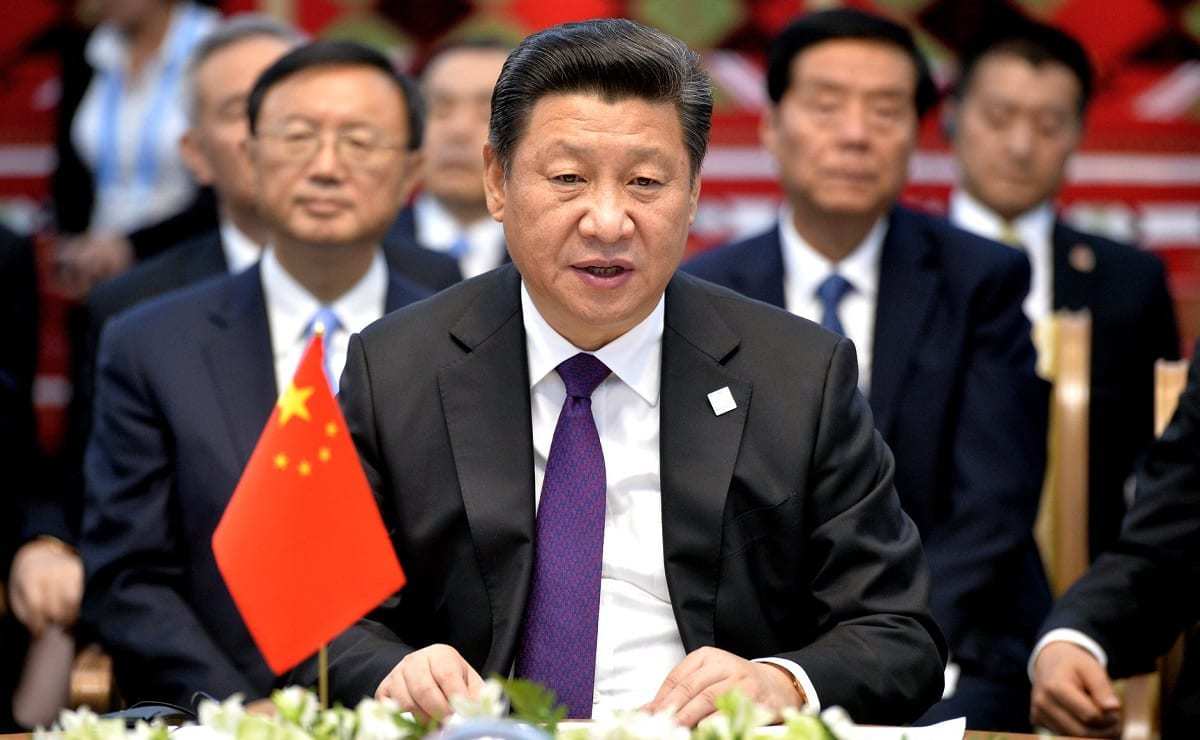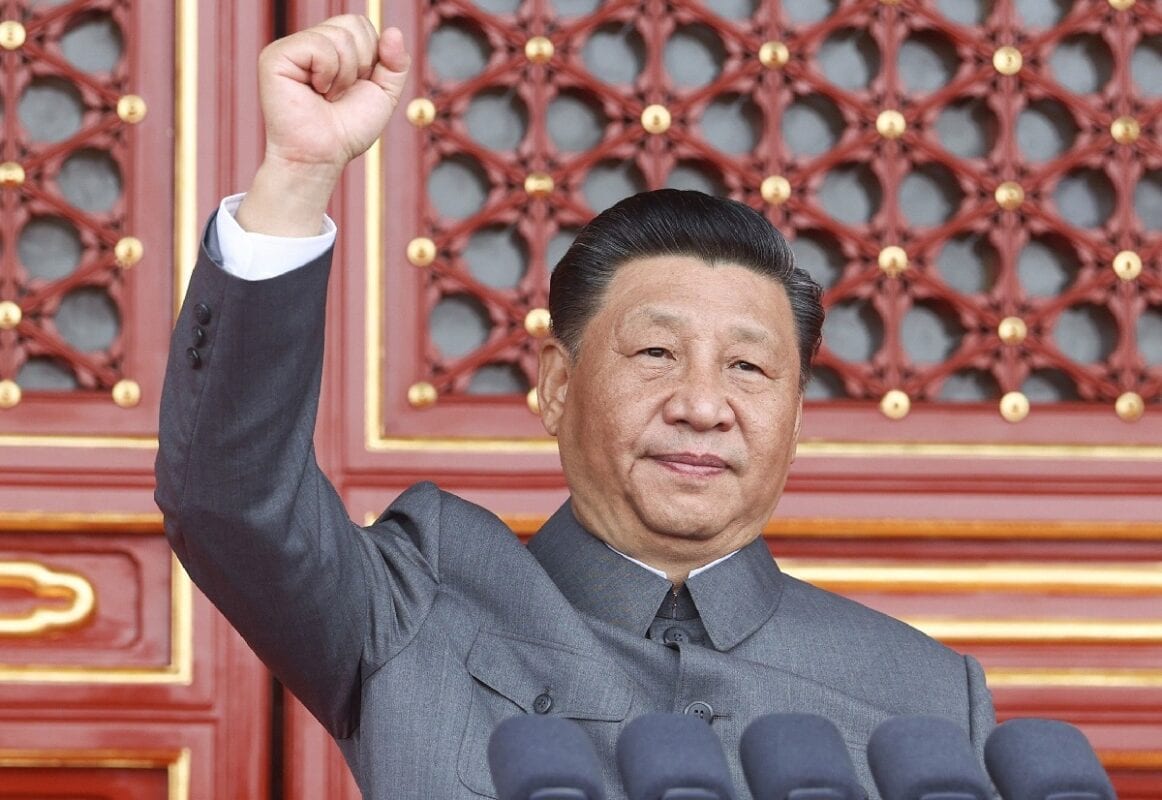Dan Blumenthal and Cindy Chen

As the People’s Republic of China marks its 20th party congress this month, Chinese President Xi Jinping is poised to shepherd both the Chinese Communist Party and the nation into a new and dangerous era. The foundations of China’s “harmonious rise” – public quiescence predicated on sky-high growth – have crumbled. Xi has responded by centralizing power, relying increasingly on the coercive tools of his internal security services to govern. But the Chinese leader’s effort to build a 21st-century police state promises growing internal risk, and this will likely translate into conflict-seeking abroad.

China’s Xi Jinping at BRICS Summit. Image Credit: Creative Commons.
Xi Jinping’s Cycle of Purges
The trouble has been building for many years. Xi reached power in 2012 after decades of explosive growth and what the Party calls managed capitalism. Xi came into the office convinced of growing and dangerous challenges to the Chinese Communist Party. He fretted that, like the Soviet Communist Party before it, the CCP regime’s rule could be undone by lax party discipline, disintegrating ideological fervor, and too much openness to the rest of the world. The same year, he gave a speech decrying Soviet leaders’ “rejection” of Lenin and Stalin’s ideology.
Not long after, Xi created a Central National Security Commission to address a broad and newly defined set of threats – political, cultural, and ideological. The Chinese leader called the approach “holistic security,” and its central pillars should surprise nobody: Xi must be at the core of all political and policy decision-making, and only constant political purges can maintain party purity and security. No one is immune, and a series of senior officials have been forced out (or driven to suicide, in cases such as Gen. Zhang Yang, a former head of the Central Military Commission’s Political Work Department). Even the purgers have been purged, including figures such as Fu Zhenghua, a former deputy minister of public security, and Sun Lijun, formerly vice minister of public security.
There is a grim, inexorable logic to this cycle. At some point, each official in charge of safeguarding the party from ideological and political threats will know too much and grow too powerful for Xi’s comfort, necessitating their removal. Such Stalin-style behavior rarely ends well. But Xi Jinping is doubling down, his thinking recorded faithfully in the party’s theoretical journal Quishi:
“Of all the ruling parties of the world, how many have dared to fight corruption on such a large scale, and with such great intensity and tireless persistence, as our Party? Some people tout the West’s multi-party rotating rule, and tripartite ‘separation of powers’ and such, and do not believe that our Party can turn the blade inward and carve out its own decaying flesh. The Chinese Communist Party’s courage in the practice of self-revolution has given them a resounding and powerful answer.”
The People’s Liberation Army has likewise seen the “blade:” In 2016, two vice chairmen of the Central Military Commission, Xu Caihou and Guo Boxiong, were arrested and removed from office. Xi is apparently haunted by the Soviet military’s “professionalism” during the Soviet collapse, as he explained himself:
“Why must we stand firm on the Party’s leadership over the military? … Because that is the lesson from the collapse of the Soviet Union. In the Soviet Union, where the military was depoliticized, separated from the Party and nationalized, the Party was disarmed. A few people tried to save the Soviet Union. They seized Gorbachev, but within days it was turned around again, because they didn’t have the tools of dictatorship.”
To avoid just that fate, Xi has taken concrete steps to ensure that the party commands the gun through unprecedented military reforms. He introduced new bodies to enforce political loyalty and strengthen his personal control over the military. He built a network of trusted allies to act as his eyes and ears within. He has also ensured that career advancement will depend more upon ideological purity and subservience to political leadership, leading military officials to spend precious hours studying “Xi Jinping thought” rather than training.
The Trouble Doesn’t Stay in China
The Chinese economy has also been a victim of Xi’s holistic security. Party cells now have a prominent place in corporate boardrooms, wielding considerable influence over decision-making. Xi Jinping thus crushed Jack Ma, former chairman and founder of the Alibaba conglomerate and China’s richest man, while seeking to break the central market positions of megaliths such as Alibaba, Tencent, and Didi through high-profile market interventions.

Chinese President Xi Jinping.
The CCP’s campaigns to reinvigorate domestic ideological fervor will not deter the party from foreign adventures. Indeed, China was more bellicose during the Cultural Revolution under Mao, a likely inspiration for Xi’s current effort. A foreign enemy is vital to mobilize party cadres and justify the politics of purges. Just as Mao did, Xi Jinping will cement the CCP’s hold on power by vilifying foreign countries. (Japan and the United States are particular favorites.) But this strategy, while arguably sound at home, will generate ever greater tensions between China and the rest of the world, in turn generating even greater pushback against China’s global ambitions.]
A Disaster Looms for Xi Jinping
Thus has Xi Jinping created for himself another cyclical problem. His legitimacy rests on the culmination of his grandiose global aims, whether reuniting Taiwan with the mainland or completing the colonization of the South China Sea. Failure to achieve them puts the Party leader at risk at home. This risk is then mitigated with ever more draconian purges. Indeed, Xi has mixed a recipe for disaster, both for himself and for the People’s Republic of China. Dangerous days are ahead.
No comments:
Post a Comment